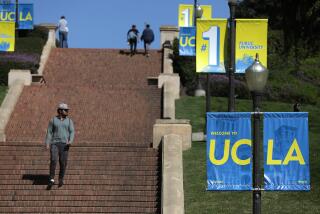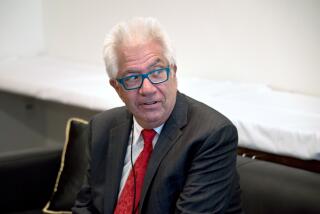Intellects and U.S. Politics
- Share via
Ronald Brownstein correctly points out that intellectuals and academics are rarely elected to political office (Column One, March 4). But their influence on the American scene is more pervasive than that observation suggests. The Times’ Opinion section of the same date contained 19 columns. Bylines identified five of the columnists as current academics. Among the remainder, one was an historian, one a novelist, and one a former academic (Henry Kissinger, originally of Harvard!). That is, almost half of the individuals you selected to interpret the world to your readers were academics and intellectuals, not professional journalists.
The U.S. has a long history of incubating academic ideas and eventually turning them into practice. Social Security was created in the 1930s out of the musings of John R. Commons and his students at the University of Wisconsin in the 1920s. Deregulation in the 1970s owed much to Alfred Kahn (Cornell University). Even the now-infamous junk bonds of the 1980s have roots in writings on debt vs. equity by Nobelist Franco Modigliani and Merton Miller (then of Carnegie Tech) in the 1950s. The list is endless as is the potential for new ideas to influence American life, for better or worse.
DANIEL J.B. MITCHELL
Professor, Anderson School
of Management, UCLA
More to Read
Sign up for Essential California
The most important California stories and recommendations in your inbox every morning.
You may occasionally receive promotional content from the Los Angeles Times.













